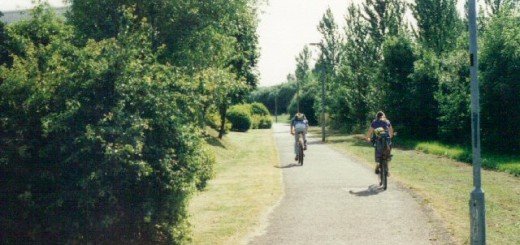Waste and energy
Energy saving and waste reduction
 Although the following suggestions relate to the UK, the general principles behind them can be applied anywhere in developed countries.
Although the following suggestions relate to the UK, the general principles behind them can be applied anywhere in developed countries.
Many quite simple actions can result in considerable savings. Penney Poyzer, in her book ‘No Waste Like Home’, suggests that the average family in the UK wastes £430 worth of food every year. Another £200 is spent on wasted energy.
This amounts to a staggering £9 bil that Britons waste on the unnecessary use of energy and good food thrown away every year.
Sadly this waste increases economic growth, but who pays the price!!
These are not the only causes of waste in the home. If all the possible savings are added up for the average family, these could amount to as much as £4,000 each year – £60 bil for the UK as a whole. On average people throw away 7 times their own body weight each year.
All of this waste does of course add to global warming. In 50 years time, as a result of rising temperatures, UN scientists estimate that there will be 10,000 more cases of food poisoning, 5,000 more deaths from skin cancer and 2,000 more cataract operations each year in Britain. Note that this is in addition to the fears that many scientists predict about the effects of global warming which include the possibility of an ice age developing in northern Europe as a result of the Gulf Stream being effectively ‘cut-off’ – an outcome of melting ice in the Arctic.
When we look at some basic statistics, the role we can play in reducing waste and helping the environment can seem obvious. All we need is the will to make the necessary response. Each year in Britain:
- 17 bil plastic carrier bags were given away by supermarkets (290 bags for every person). In December 2015 the government brought in legislation that requires a charge to be made when plastic bags are issued. This is likely to reduce this wasted dramatically.
- 400,000 tonnes of disposable nappies were used (8 mil nappies are thrown away every day).
- the average family throws away 208 Kg of paper
- only 17% of waste is recycled and waste is increasing at the rate of 3% each year
- £5 bil worth of energy is wasted (Note that within the next 20 years Britain is expected to be importing 80% of gas)
- £1.2 bil is spent on running fridges and freezers
- the health impact of traffic pollution amounts to £11 bil (85 % of households in rural areas have at least one car – 70% in urban areas)
The cost of managing household waste is £1.6 bil and this is expected to rise to £3.2 bil by 2020. Of the 7,000 incinerators, 12 burn municipal waste.
20% of what comes through the letterbox is never opened and 60% is never read.
What can be done?
Here are some suggestions:
- Switch to an energy supplier such as Good Energy which supplies 100% renewable energy from sun, wind and rain. It sources from independent generators across the country and it has its own wind farms at Delabole, North Cornwall and Hampole near Doncaster. It also has solar farms at Creathorne Farm near Poundstock, North Cornwall, Crossroads in Dorset and Rook Wood in Wiltshire. It supplies to 55,000 electricity customers and 28,000 gas customers and supports over 93,500 homes, businesses and communities generating their own electricity. Good Energy also operates the feed- in tariff scheme for those with installed solar panels.
More information about energy-saving. - Replace all light bulbs with energy efficient bulbs
- Switch off computers and television when not in use instead of leaving on stand-by.
- Put an insulation jacket around the hot water tank and lagging around hot water pipes.
- Install 250 mm thickness of loft insulation between ceiling joists.
- Install cavity wall insulation.
- Lay fitted carpets over floor boards.
- Replace single glazed windows with double glazing. For windows with wooden frames a relatively cheap way of doing this is to use double glazing units rather than go to the cost of replacing the glass and the frames.
- Eliminate draughts around window frames and doors.
- Turn the thermostat down 1deg C. This could save 10% of the cost of running the central heating.
- Remove furniture away from radiators and place aluminium foil behind the radiators.
- Use a gravity shower connection connected to the bath taps instead of a power shower. Limit your shower to 5 minutes.
- Use heavy curtains with a thermal lining.
- Use a ‘green’ electricity supplier who sources electricity from renewable energy.
- Use energy efficient appliances (A to G rating) – ‘A’ rating is the most efficient. Look out for the blue and orange logo.
- Use a ‘Sava Plug’ to connect fridges and freezers (350 watt max) to siocket outlets. Make sure there is proper seal around the doors and defrost when ice builds up.
- Using a 40 deg C wash rather than 60 deg C will save a third of the amount of electricity used by a washing machine.
- Put lids on cooking pans.
- Run the water from shed roofs into water butts and use for watering the garden.
- Get a plumber to stop all drips from taps and overflows. If you are on a meter you may be surprised at the increase in your water bill if you don’t.
- Install a two-flush toilet cistern. 35% of water is used flushing the toilet and this simple action will reduce the amount of water used in each flush by about a third.
- Take a shower instead of a bath but limit it to 5 mins.
- Wait until you have a large load before washing clothes. This will also save electricity.
- Use re-usable terry nappies instead of disposable ones.
- Put disposable nappies, tampons, sanitary towels, cotton buds, condoms and cigarettes in the bin, not the toilet, otherwise these may cause blockages in the sewerage system.
- Recycle all tins, bottles, paper and clothes.
- Compost most uncooked kitchen and garden waste but dont include cat litter, dog faeces, disposable nappies, diseased plants, meat. fish and cooked food. Try and get a balance of organic material and fibrous material like straw, wood shavings, dried leaves and shredded twigs.
- Buy vegetables loose and not pre- packed. If you can, avoid shopping at supermarkets.
- Use reclaimed timber where possible. This might be superior in some ways for outdoor uses and will usually be cheaper than the equivalent bought at a timber merchants or DIY store.
- If you possibly can, do not have a car or large motorcycle of your own for transport, but instead walk or use a bicycle and public transport.
- If you do own a car then keep it regularly serviced. Keep tyres properly inflated at the correct pressure (under-inflated tyres acn increase fuel use by about 8%). Driving at 50 mph instead of 70 mph is likley tol use 25% less fuel.
- Take your holidays close to home and avoid long distance travel by air.






